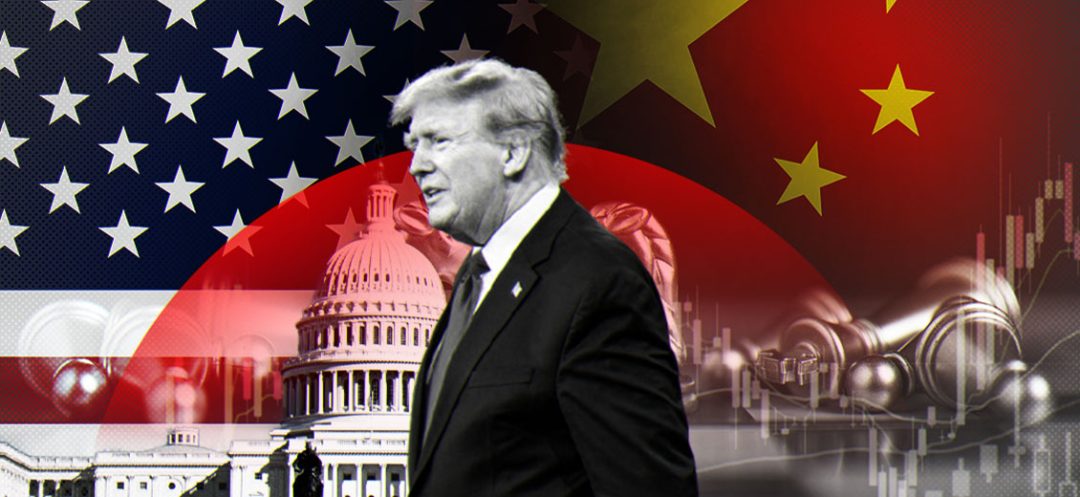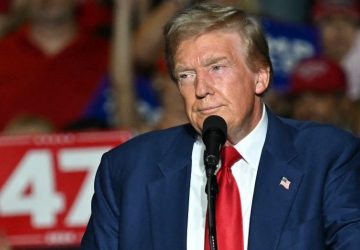Listen to the article
America’s presidential election is too close to call. It may be useful today to examine what a Trump victory might mean for foreign policy. Later, we can examine prospects for a Harris foreign policy — whenever she says enough to assess.
When speculating about the direction of foreign policy under Trump 2.0, keep in mind three elements of Trump’s national security DNA: trade protectionism, border controls, and a desire not to be taken for granted or bear every burden across the globe. These are the issues that dominate Trump’s global vision, inspire his following, and would preoccupy a re-elected Trump team. That doesn’t mean there will not be other opportunities and problems, but it is outcomes in those arenas that Trump will pursue with the greatest vigor. Trump has set a high bar for himself on trade and border restrictions in part because it is politically useful but more deeply because those issues have dominated his thinking about the world since the 1980s. Dealing with the security problems posed by China, the Ukraine war, North Korea, and Iran will require attention, but tactical flexibility would characterize approaches taken.
China
The incompatible ambitions of China and America are on a collision course. A re-elected Trump will likely prioritize a new trade deal over geopolitics while expanding defense spending, which at present lags the rate of inflation. Xi will use the remainder of his terms as CCP secretary general and Chinese president (and beyond if he seeks a fourth term in 2027/2028) to expand China’s global reach and regain control of Taiwan. While a broad, bipartisan consensus has developed in the U.S. on the need to counter those Chinese threats to American interests, there are ambiguities and unresolved contradictions on key elements:
– An esoteric debate exists in Washington over whether the U.S. should “de-risk” or “de-couple” its economy from China. The esoteric quality arises because officially directed de-risking tends to cascade quickly into something more. The U.S. government annually identifies sectors, investments, goods, and services denied for business with China. Corporate America will know all too well that what escaped this year’s U.S. list for “de-risking” could well be on next year’s. That will make CEOs prone to ever-more conservative approaches to exposure to the Chinese market to avoid gambling on activity that American officials may decide to ban in the future. Complete decoupling of these two huge, intertwined economies is not on the short-term horizon, but America’s private sector may take an increasingly cautious approach to working with China.
-The “pivot”: recognizing the centrality of America’s contest with China has underpinned the long-discussed but embryonic “pivot” of U.S. national security strategy and assets toward Pacific Asia. Part of the problem is that threats from Russia and Iran to U.S. alliances and interests don’t stop just because the U.S. wants to pivot away. Another part of the problem is conceptual; if the contest with China is global in nature, then the U.S. should retain its privileged global network of security and economic ties, a great advantage. Maintaining those ties requires presence. The next administration will need to settle on an approach that gives our regional allies the capacity and will to better defend themselves while Washington invests more heavily in East Asia.
– Taiwan: the coming flashpoint for America and China is Taiwan, to state the obvious. The 50-year-old mantras Washington and Beijing have used regarding Taiwan are wearing thin, including “strategic ambiguity” over the U.S. defense of Taiwan. President Biden persistently asserted that the U.S. was committed to Taiwan’s defense, and his staff regularly corrected the record afterward to somehow restore ambiguity. Trump is unlikely to box himself into an ironclad commitment in this regard. Sometimes ambiguity in diplomacy helps avoid needless public provocations and fights over words; but sometimes, as Truman learned with Korea in 1950, superpower ambiguity can prove lethal by triggering dangerous miscalculations. A key question in the next four years will be how Washington signals to China — through words and actions — the costs associated with aggression against Taiwan.
Ukraine
The war of attrition has no end state in view, as Russia seems unable to win and Ukraine strong enough not to lose. In the next four years, America will face a decision whether to try to end this war through escalation or a negotiated outcome in a way that neither undercuts the Ukrainians nor rewards Russian aggression — and has some chance of sticking. This balance will be difficult to strike but expect Trump to try.
Burden-Sharing
There was nothing new about Trump’s demand for greater burden sharing by America’s allies in collective security, especially NATO members and South Korea. His innovation was to pursue it with an uncompromising tone and clear indication of consequences for allies that continued to take a free ride. It worked. Far more NATO members than ever before meet their pledge of defense spending of at least 2% of GDP (18 of 32). Trump will continue to insist that alliances meet the test of present-day relevance in tackling 21st-century threats with sufficient burden sharing by all. He will give some allied leaders and audiences the vapors. But America’s alliances will be stronger when they pass the test of commanding political support at home.
North Korea
Trump will seek to revive his charm offensive with Kim Jong Un. That approach is better than a frozen relationship but would need an underpinning of institutional follow-up by diplomats and defense officials if it is to deliver real progress toward stability. That institutional framework is simply lacking in Pyongyang’s extreme case of one-man rule.
Iran
The Middle East is likely to experience the greatest shift in any transition from the Biden to Trump presidencies. Countering Iranian aggressive capacities, intentions, and activities will return to the center of American regional policy, as a necessary starting point for restoring deterrence and protecting U.S. interests in specific theaters, such as the Gulf, Red Sea, and the Levant. Trump is unlikely to renounce a two-state outcome for Israelis and Palestinians but will see ending Iran’s ability to thwart America at every turn, which degrades American influence and ability to promote peace, as the first order of business. Maximum pressure will likely far exceed levels reached in 2018-2020, the only time it was applied.





